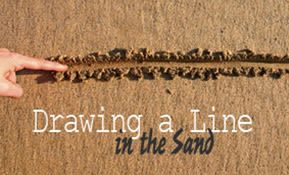
Pekudei: Vote of Confidence
We have the potential to go down in history as the source of clarity and light in a world filled with confusion and darkness. Our potential for elevation was established by our ancestors, and the tools to reach our goals are guaranteed by the Almighty.

The pavement was still warm from the hot day as the shadows grew in the approaching evening. Barefoot and dirty, with multiple band-aids across my knees, I would play catch with my dad in the final moments before nightfall. In those dusty evenings so many summers ago, I was puzzled by a strange reality gap. Whenever I watched my baseball favorite team on television, it seemed they could throw, run, and hit effortlessly. The baseball would fly from hand to glove and from bat to the outfield. Yet in reality, the ball was always harder and faster than it appeared on television. My athletic ability was dismal at best. I could never understand how, on television, the game looked so graceful and flowing, but whenever I played, it was so frustrating and choppy.
Fast forward a few years to when I was a junior in college and first stepped foot into an orthodox synagogue. From my perspective, every man, woman, and child had the wisdom of our illustrious teacher, Moshe (Moses). Although the prayers were in Hebrew, everyone knew the words! The rabbi could quote Torah verses off the top of his head! Everyone knew exactly when to stand up, sit down, bow, eat, sleep, yawn, and say, “Amen.” Although I had exchanged my green, threadbare baseball hat and dirty shorts for a ridiculously white pair of Dockers and a dark blue button down (which certainly did not help me blend into the frum, all black and white crowd), I felt like a seven-year old again. Although I could stand in the synagogue holding an Artscroll siddur (prayer book), I was impossibly lost; my ability and understanding was pathetic compared to everyone around me.
In this week’s parsha, we learn an important lesson about spiritual growth. Betzalel was put in charge of building the Miskan (the Tabernacle). According to the Gemarah, God told Moshe to instruct Betzalel to build the Mishkan and all the vessels that belong inside of it. But when Moshe repeated these instructions to Betzalel, he reversed the order, telling Betzalel to make all the vessels and only then to build the Mishkan. Betzalel asked where he would put the vessels he would make if he didn’t build the Mishkan first. Moshe responded. “You are called ‘Betzel Kel’ ‘in the shadow of God’ for you know precisely how to interpret God’s words as if you were there in His shadow” (Berachot 55a).
Internalizing Holiness
Rabbi Zev Leff offers an amazing insight. In his Torah commentary, “Outlooks and Insights,” he suggests that there was a shift in the Mishkan’s purpose after the sin of the Golden Calf. Before the sin, the Mishkan was a physical manifestation of the spiritual connection between God and the Jewish people. After the Jews sinned with the Golden Calf, the relationship between God and the Jewish people was permanently distanced, and God’s presence was most concentrated in the physical parameters of the Mishkan. Maximum spirituality could only be reached through physicality.
Moshe changed the order of God’s instructions, telling Batzalel to make the vessels before the Mishkan, rather than the other way around, because in his exalted stated he did not require physicality for spiritual elevation. Before achieving the height of spirituality – speaking with the Almighty – Moshe would fast to distance himself from the physical. To him, the order of the physical components of the Mishkan was largely irrelevant. He did not require the exterior, the actual Mishkan, to create the internal components. For Moshe, the internal relationship with God could exist even without external action. The Jewish people, on the other hand, did not have that type of a relationship with the Almighty. Therefore, they needed to engage in physical, external actions to internalize holiness.
An internal relationship with God, is, to a large extent, contingent on exterior physical actions. Through doing the mitzvot, we build and maintain our spirituality. Rabbi Leff explains, “As long as we aspire to attain that kavanah (proper intention to build a relationship with God), our actions will bring us to that goal. Also, we must remember that even at the height of spiritual inspiration, we must never minimize the importance of the meticulous observance of the physical mitzvot, for they are the true culmination of those spiritual feelings.”
Once we understand that an internal relationship with God is, to a large extent, contingent on exterior physical actions, we can understand the Gemarah, “There is no happiness except meat and wine.”
Using the Physical
It sounds as if a good steak and a bottle of cabernet sauvignon is a legitimate substitute for going to synagogue. However, we learned that physicality unlocks spirituality, and therefore through utilizing the physical properly, we can achieve happiness. By eating with the intention that the food will replenish our bodies and give us the ability to continue serving God, the physical act of eating becomes a mitzvah! Through blessing the food to acknowledge that God has provided us with the meal and sustains us on a daily basis, we are elevating the mundane to a Divinely inspired experience.
What a concrete example of God’s infinite love! Not only do we enjoy the delights of this world, but we are also able to enjoy the delights of the next world! For this reason festive meals on Yom Tovim and Shabbos are such a central component of Judaism.
But even with the tools to build ourselves spiritually, how can we be assured success? Understanding the rules of baseball doesn’t immediately make a person ready for the big leagues. It may appear as if only the elite can develop a “professional” relationship with God.
In Parshat Vayakheil, the Torah recounts, “Moshe summoned Betzalel, Ohaliav, and all the inspired individuals whose hearts God had imbued with talent-all who lifted up their hearts to dedicate themselves to completing the task” (Shemot, 36:2). In his book, “Torat Habayit,” the Chofetz Chaim points out that the word “and” is missing from between the phrases “imbued with talent” and “all who lifted up their hearts.” That is to teach us that there was no distinction between those who God imbued with talent and those who wished to work on the Mishkan. When we desire to fulfill a mitzvah and contemplate how to achieve the best positive results, God provides us with whatever we need to fulfill the task.
Yes, we CAN!
Just as any good boss provides his employees with the proper tools to accomplish a given task, God also guarantees us the tools we need to fulfill our mission in this world. For that reason, we can never claim that a relationship with God, or any mitzvah for that matter, is beyond our capacity. We must simply try. Unlike baseball, where a variety of other factors determine one’s success, God promises that anyone who sincerely desires to grow spiritually will reach the big leagues. Granted, people have different potential and different talent. Not everyone could achieve as much in their life as our holy sages. Yet we can all their own maximum potential, which is our ultimate purpose in life.
If we feel distanced from the spiritual greatness of our forefathers, we need not feel disheartened. Rebbe Nachman told a tale of a rich businessman who was repeatedly robbed by the same burglar. Each time he was robbed, he would gather what was left of his belongings and attempt to continue with his life. When circumstances became so dire that he was left with only the clothes on his back and the bare walls of his home, he sold his house and used the money to travel from town to town as a poor peddler.
One day he spotted the thief coming towards him carrying two huge sacks over his shoulders. The formerly wealthy businessman began to cry and plead with the thief not to take his last belongings, but it was to no avail. The thief robbed him once more and the man was left totally broken.
The man continued on, weeping bitterly. He had lost everything. Suddenly, ahead of him, he saw that the bandit had fallen from his horse! Before the thief could get up, the horse stepped on the robber’s head. The man whom had been robbed approached, and to his surprise, found his aggressor dead. The two huge sacks the thief had been carrying were full of the man’s possessions. He recovered every last penny that had been stolen, and returned home joyous and rich (from “Courage! Despair Does Not Exist)!
Reb Noson heard this story from Rabbi Nachman. He explained that this story is teaching us not to lose heart. The point of life is to exert ourselves and strive to build ourselves spiritually. No matter how lost we might feel, how ignorant, or how distant from a healthy spiritual relationship we may be, God will always listen to His children. Should we make ourselves worthy, God will return us to our exalted birthright and re-elevate us to the level of our ancestors when they received the Torah and prior to the sin of the golden calf.
Maybe we weren’t all made to be professional ball players. However, all of us have the potential to accomplish something far greater. We have the potential to go down in history as the source of clarity and light in a world filled with confusion and darkness. By striving to perfect our mitzvot, we can break through the bonds of doubt, ignorance, and frustration that hold us back from greatness. Our potential for elevation was established by our ancestors, and the tools to reach our goals are guaranteed by the Almighty.
We are charged with using our physicality to unlock our spirituality. Through accomplishing this, we can achieve our maximum and develop a deep, intimate relationship with the Almighty.












Tell us what you think!
Thank you for your comment!
It will be published after approval by the Editor.